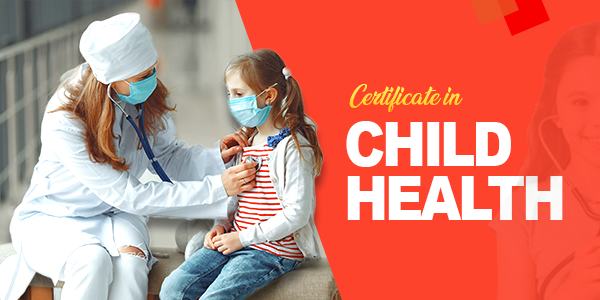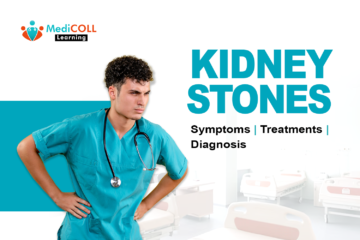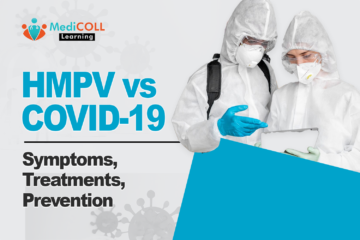
The health and well-being of children are fundamental to shaping a healthier future society. Specialized knowledge in pediatric care is vital for addressing the unique medical needs of children, encompassing their physical, emotional, and developmental well-being. The Certificate in Child Health program offers healthcare professionals an opportunity to enhance their expertise in pediatrics, bridging the gap between general medical knowledge and specialized pediatric care.
Overview of the Program
The Certificate in Child Health is a concise, skill-oriented program designed to provide healthcare practitioners with a thorough understanding of pediatric medicine. This program equips learners with the ability to diagnose, manage, and prevent common childhood illnesses and ensures a strong foundation in pediatric growth and development.
Key components of the program include:
- Foundations of Pediatric Care: Understanding children’s normal growth and development patterns, early identification of abnormalities, and mastering essential pediatric history-taking and examination techniques.
- Management of Common Pediatric Conditions: Training in evidence-based approaches to common conditions such as respiratory infections, diarrhea, nutritional deficiencies, and allergies, alongside acute management of emergencies like febrile seizures and dehydration.
- Preventive Pediatrics: Emphasis on vaccination schedules, growth monitoring, and the importance of health promotion in children to prevent disease and disability.
- Integrated Multidisciplinary Approach: Exposure to the role of multidisciplinary teams in pediatric care, including collaboration with dieticians, psychologists, and educators.
Key Challenges in Child Health
- Undernutrition and Obesity: Malnutrition remains a significant issue in low-income regions, while childhood obesity is a growing concern globally. Both have long-term implications for health.
- Infectious Diseases: Conditions like pneumonia, diarrhea, and malaria are prevalent in underprivileged areas. Strengthening healthcare systems is crucial for managing these diseases.
- Mental Health Stigma: Awareness and acceptance of mental health issues in children are still limited in many cultures. Access to pediatric mental health services needs improvement.
Role of Healthcare Providers and Parents
Healthcare professionals are pivotal in guiding caregivers on optimal practices, from breastfeeding to injury prevention. Parents and guardians must ensure a safe, nurturing environment while fostering habits that promote lifelong health.
The Path Ahead
Investment in child health is an investment in the future. Multidisciplinary efforts, involving healthcare providers, governments, and communities, are essential for addressing the diverse aspects of child well-being. Programs targeting immunization, nutrition, mental health, and education can create lasting positive impacts.
Learning Outcomes
Participants completing the program will:
- Gain proficiency in the early detection of developmental and behavioral disorders.
- Develop competency in managing acute and chronic pediatric conditions.
- Learn effective communication techniques for interacting with children and their families.
- Understand and apply pediatric pharmacology principles safely.
Scientific Relevance
Global data showing high rates of preventable childhood morbidity and mortality underscore the need for skilled professionals in child health. According to the World Health Organization (WHO), common conditions like pneumonia, diarrhea, and neonatal complications remain the leading causes of child mortality. With appropriate training, healthcare professionals can significantly reduce these statistics, contributing to improved child survival rates and long-term health outcomes.
Advancing Pediatric Care
Investing in a Certificate in Child Health aligns with global health priorities, such as those outlined in the United Nations’ Sustainable Development Goals (SDG), particularly SDG 3, which focuses on good health and well-being. The program reduces child morbidity and mortality by enabling healthcare professionals to deliver high-quality pediatric care, ensuring children thrive in their early years.
Conclusion
The online Certificate in Child Health is pivotal for healthcare professionals committed to enhancing pediatric care delivery. By fostering a deeper understanding of child health, this program empowers practitioners to make a tangible difference in the lives of children and their families. Investing in specialized training in pediatrics is not just a professional development opportunity but a commitment to nurturing a healthier future generation.



0 Comments